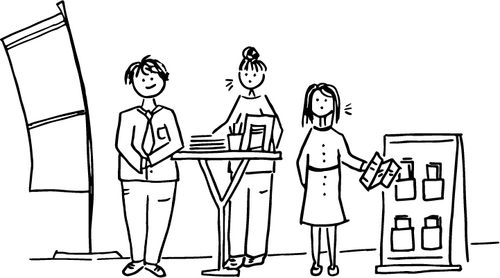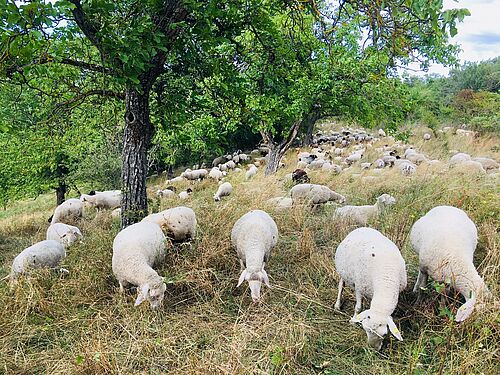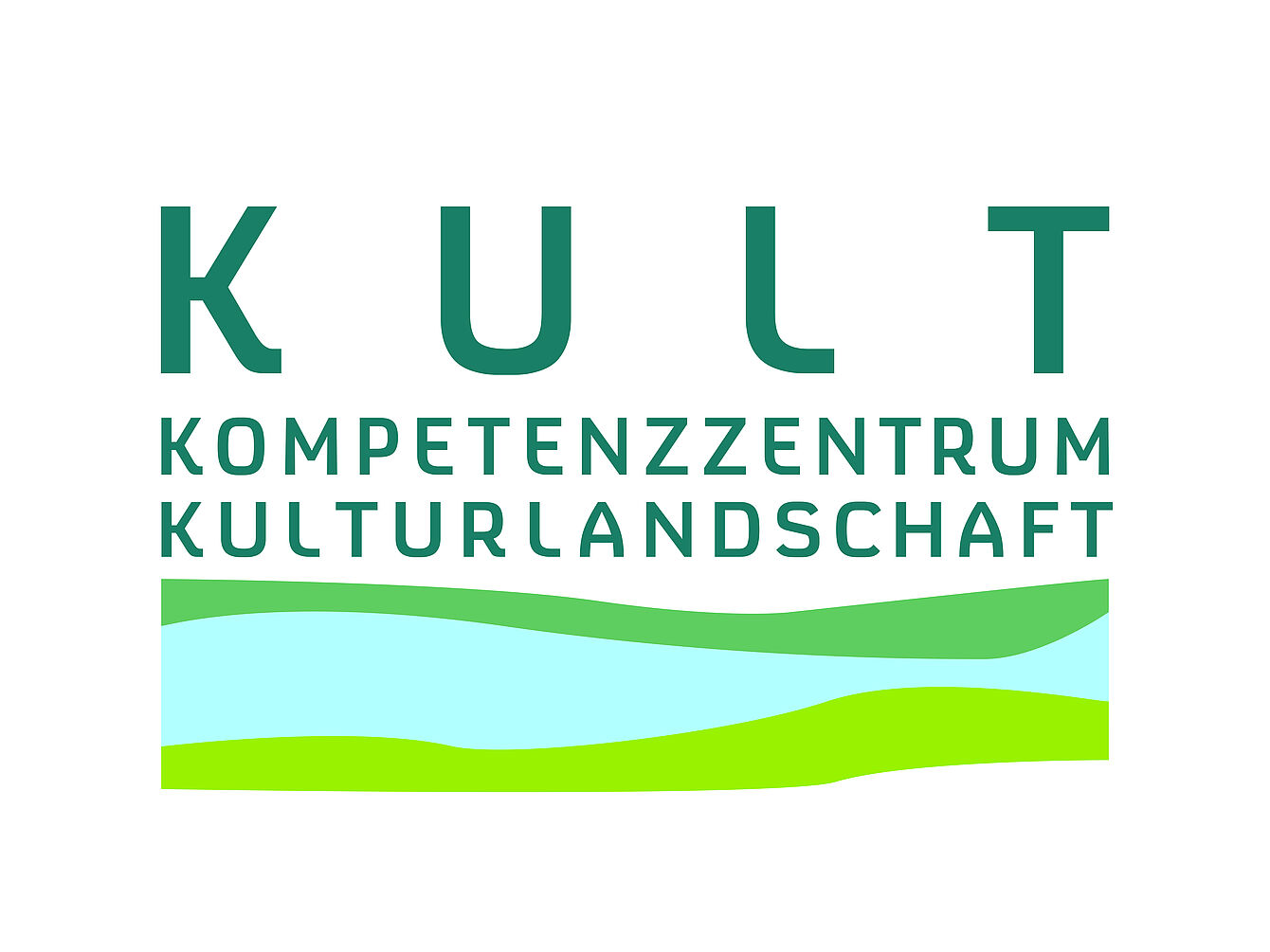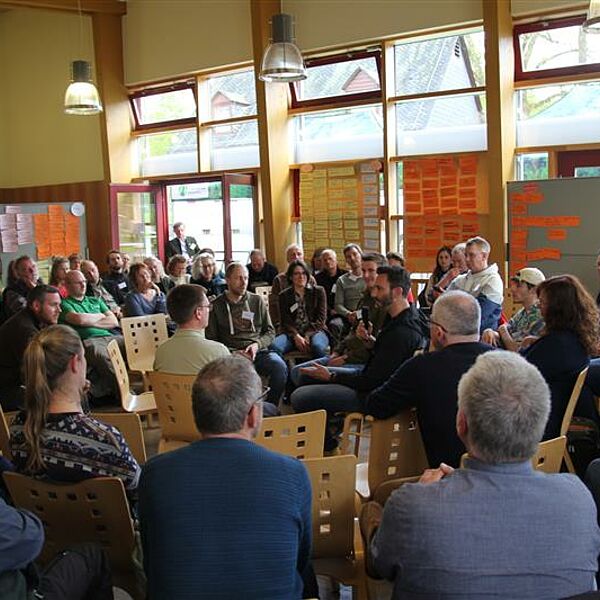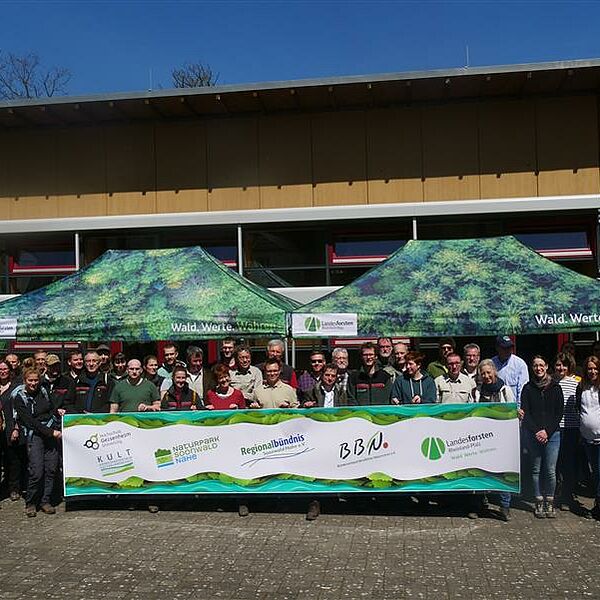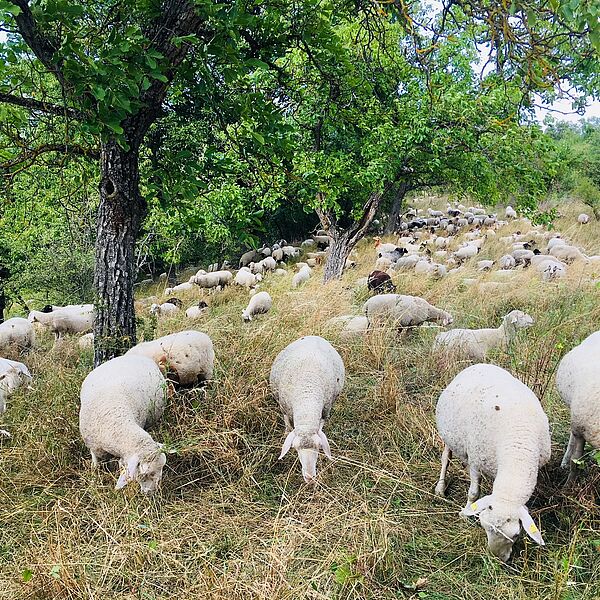Wiesbaden/Geisenheim. Today, Boris Rhein, the Minister for Higher Education, Research and the Arts, introduced the new LOEWE-cluster “AROMAplus – From plant-based raw materials to microbiological production – Aromas and functional ingredients from vines and fruit”. He also handed over an official funding approval notification. At Hochschule Geisenheim University, and under its auspices, research staff from the Justus-Liebig-University, Giessen and the DECHEMA-Research Institute are working on producing natural aroma compounds with the help of microorganisms from vines and fruit. Up until 2021 the State of Hessen will be providing around 4.4 million Euros of funding for the cluster. Minister Rhein’s visit to Geisenheim is part of the Hessen State Government’s “Zukunftswochen Ökonomie und Ökologie” event, which focuses on future developments in business and ecology.
Minister for Higher Education, Research and the Arts, Boris Rhein: “I am delighted about the new addition to our LOEWE-programme, and even more delighted that Hochschule Geisenheim University is now leading a LOEWE project for the first time. There is a large market for natural flavorings that is profiting from the trend towards healthy eating and which will continue to grow in the future. AROMAplus is thus a highly relevant and application-oriented research topic with an industrial perspective.”
Many of the flavorings, fragrances and vitamins in cosmetics, pharmaceuticals and foods are plant-based. The fruits of the blackcurrant, for example, are not only healthy, they are also valued for their aromas and essential oils. These substances are becoming increasingly attractive for industrial applications – and so sustainable production methods are gaining importance. In the “AROMAplus” LOEWE project the research team is looking to extract or refine plant metabolites with the help of enzymes and microorganisms such as yeasts, fungi and bacteria. In the cultivation of crops such as blackcurrants or vines organic residues are produced which the researchers want to use as biological raw materials.
During his visit, the Minister for Higher Education, Research and the Arts, Boris Rhein handed the official funding approval notification for around 4.4 million Euros to Prof. Dr. Hans-Rainer Schultz, President of Hochschule Geisenheim University. The Minister also presented LOEWE-certificates to three representatives of the institutions participating in the LOEWE-cluster.
During the “ZukunftswochenÖkonomie und Ökologie” event Hessen’s State Government is demonstrating that ecology and the economy are not a contradiction in terms. The business world has long since been developing in this direction. The Federal State of Hessen has a wide range of support measures to help businesses use the associated opportunities to become more competitive and to tap new market segments. These include anything from advisory services to targeted funding.
“Today’s visit to the LOEWE-cluster “AROMAplus” is ideally suited to the theme of our Zukunftswochen initiative: research staff working to bring together industrial demand and sustainable production. The only basis for long-term economic development, economic strength and employment is the efficient use of natural resources. This question and many other of today’s pressing problems are being addressed by highly qualified research scientists in our ‘AROMAplus’ LOEWE-cluster and the other LOEWE projects. This is why scientific funding is a priority area of regional state policy” Minister for Higher Education, Research and the Arts, Boris Rhein concluded.
Background information on LOEWE
The acronym “LOEWE” stands for “Landes-Offensive zur Entwicklung wissenschaftlich-ökonomischer Exzellenz” (State Initiative for the Development of Scientific and Economic Excellence). Between 2008 and 2017 with this open-topic research funding program, Hessen’s State Government has provided around 729 million Euros to support outstanding scientific cooperation initiatives. The LOEWE budget for 2018 amounts to a total of approx. 68 million Euros. As well as the Hochschulpakt (Higher Education Pact) and the HEUREKA construction investment program, LOEWE is the third pillar of higher education funding in Hessen. You’ll find further information at www.loewe.hessen.de.
more information: AROMAplus

